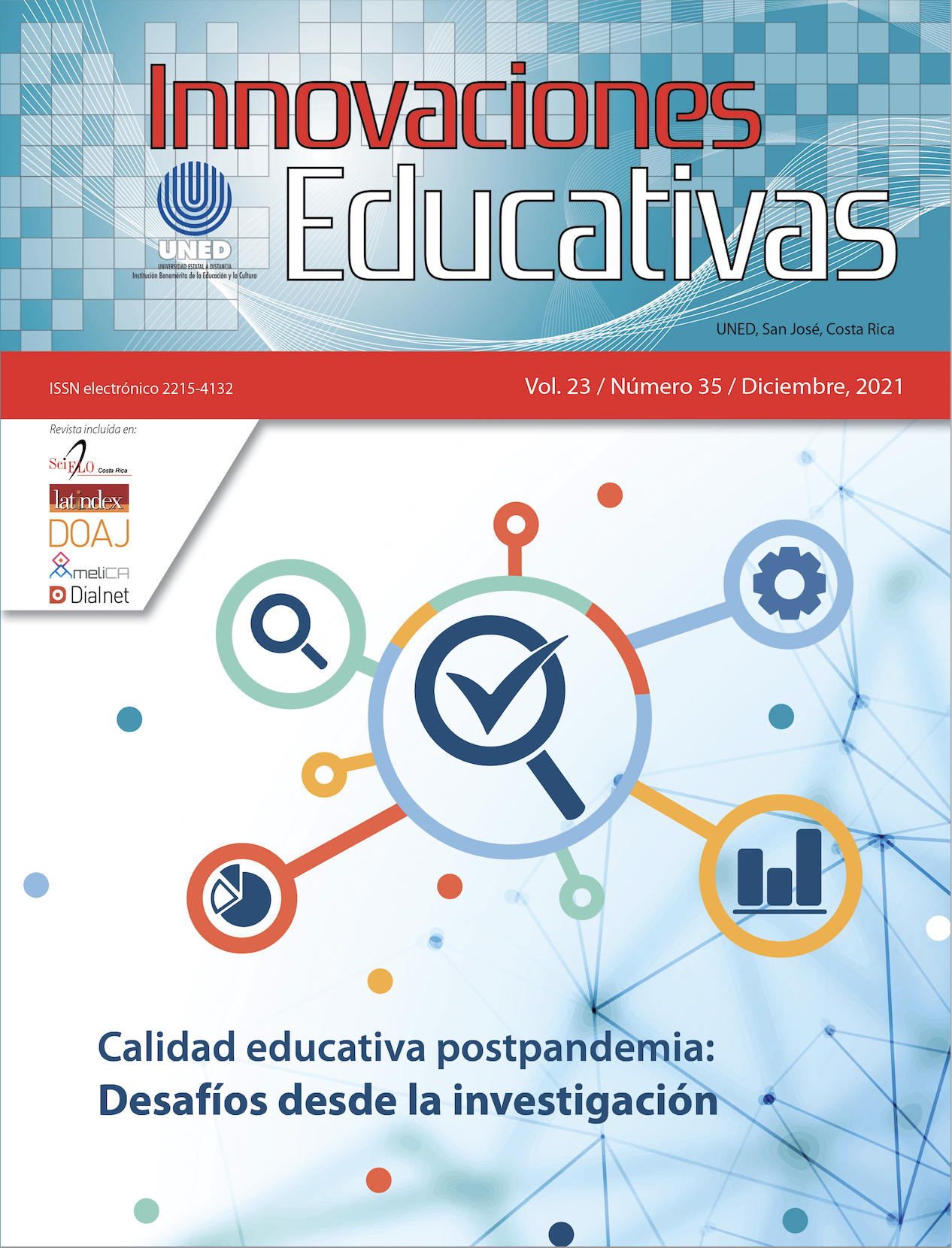Qualitative and quantitative validation of an instrument to measure university student satisfaction
DOI:
https://doi.org/10.22458/ie.v23i35.3590Keywords:
measurement method, measuring instrument, satisfaction, college student, educationAbstract
The main objective of this research is to validate qualitatively and quantitatively the instrument to measure the satisfaction of university students with their education (SEUE). This instrument was developed by Gento and Vivas (2003), and will be used later to evaluate the perception of Engineering students of the University of Zulia, in order to determine the relationships between satisfaction with respect to the variables measured and their academic performance. To achieve this objective, the previously designed instrument was submitted to expert judgment to determine its qualitative validity, and thus make the necessary modifications, to then apply it to a probabilistic sample composed of 336 subjects from a total population of 2653 active students of the School of Engineering of the University of Zulia. With these data, the reliability of the instrument was calculated using Cronbach’s Alpha and the Pearson correlation test was carried out. Subsequently, an exploratory factor analysis was carried out to determine the validity of the construct and to reduce the dimensions initially designed, to later calculate the criterion validity (concurrent validity) using a standard instrument. Finally, the stability and performance of the instrument was determined. At the end, it was possible to conclude that the dimensions could be reduced to six and the University Student Satisfaction could be measured by means of this instrument, since it proved it possesses stability and reproducibility to be used in future research.
References
Baez Aumala, Mario. (2013). Factores que determinan el desempeño académico en Zamorano. Proyecto especial para optar al título de Licenciado en Ingeniería en Agro negocios. Escuela Agrícola Panamericana. Honduras.
Basantes, Rene. (2017). Modelo ServQual Académico como factor de desarrollo de la calidad de los servicios educativos y su influencia en la satisfacción de los estudiantes de las carreras profesionales de la Universidad Nacional Chimborazo Riobamba – Ecuador. Tesis Doctoral. Universidad Nacional Mayor de San Marcos. Lima – Peru.
de Vries, Wietze; Leon, Patricia; Romero, Jose y Hernandez, Ignacio. (2011). ¿Desertores o decepcionados? Distintas causas para abandonar los estudios universitarios. Revista de la Educación Superior. Vol. XL (4), No. 160. Mexico (Pp 29-49). Disponible en: https://www.redalyc.org/articulo.oa?id=60422569002.
Gento Palacios, S., Vivas García, M. (2003) “El SEUE: un instrumento para conocer la satisfacción de los estudiantes universitarios con su educación”. Acción Pedagógica, Vol.12 (2). Venezuela (Pp. 16 – 27).
Gonzalez, Renato; Tinoco, Miguel y Torres Miguel. (2016). Análisis de la satisfacción de la experiencia universitaria de los egresados en 2015 de la Universidad de Colima. Paradigma Económico. Año 8 (2). Mexico. (Pp 59 – 84). DOI:
Higgins, S., Hall, E., Wall, K., Woolner, P., McCaughey, C. (2005). The impact of school environments: A literature review. The center for learning and teaching. University of New Castle. S/V. Australia. S/P.
Lizzio, A., Wilson K., Simons, R. (2002) University Students’ Perceptions of the Learning Environment and Academic Outcomes: implications for theory and practice. International Journal of Humanities and Social Science. Vol. 1 (21). India. (Pp. 240 – 250). DOI: 10.1080/03075070120099359
Medina, Niorka; Fereira, Johan et al. (2018). Factores personales que inciden en el bajo rendimiento académico de los estudiantes de Geometría. TELOS- Revista de Estudios Interdisciplinarios en Ciencias Sociales. Vol. 20 (1). Venezuela. (Pp. 4 – 28). DOI: https://doi.org/10.36390/telos201.02
Potthoff, Joy. (2009). Design for communication: Post-Occupancy evaluation of classroom spaces. Open house International, Vol. 34, (1). United Kingdom. (Pp. 26 – 34).
Sandoval, Maria; Surdez, Edith; Dominguez, Debora. (2016). Logro Personal: factor inherente a la satisfacción estudiantil universitaria. Opción. Vol 32 (13). Venezuela. (Pp. 704 – 724). Disponible en: https://www.redalyc.org/articulo.oa?id=31048483034
Supo J. (2012). Seminarios de Investigación Científica. Bioestadística. Perú.









